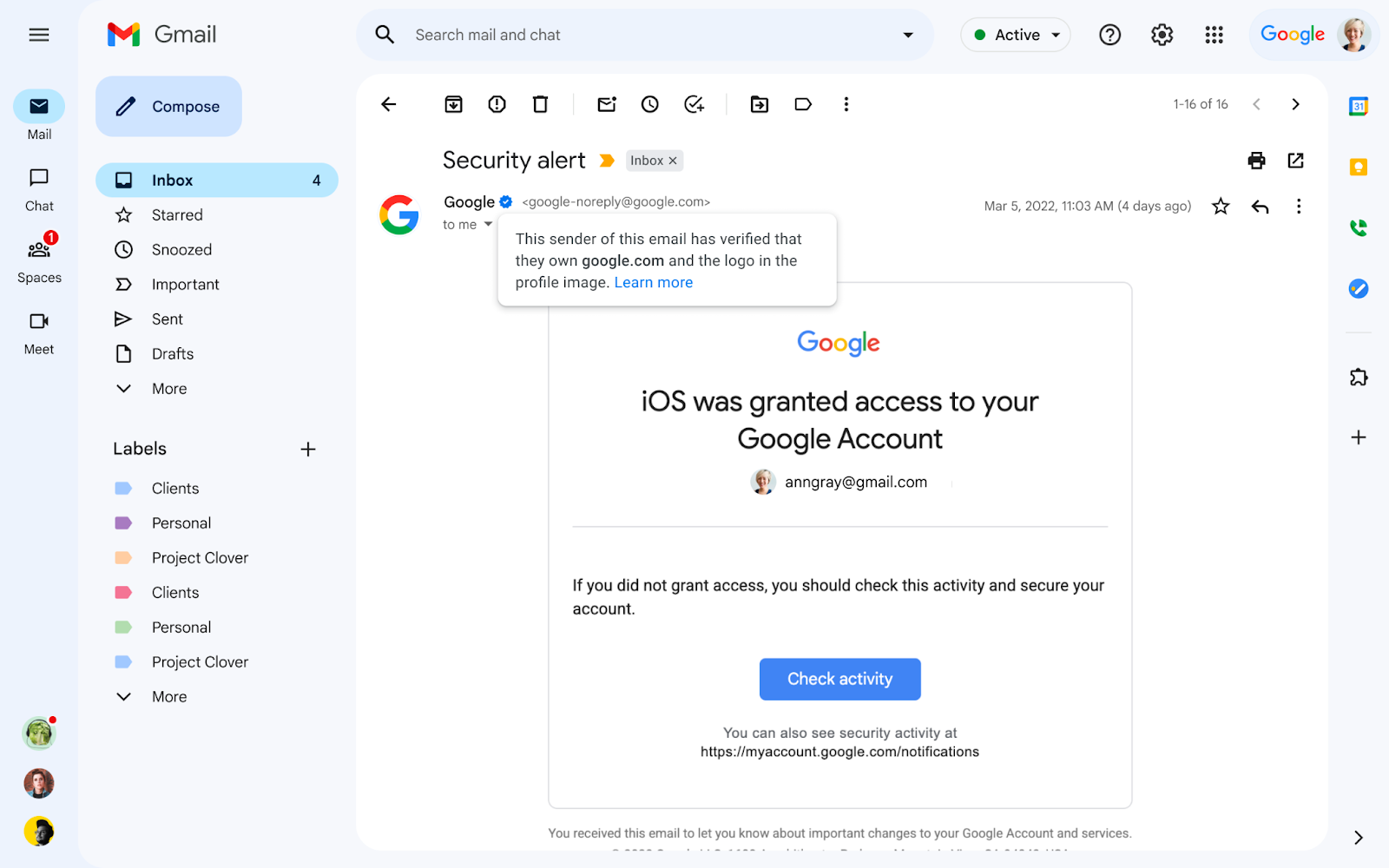Google is going to start displaying a blue checkmark next to select senders’ names on Gmail to verify their identity, the company announced on Wednesday. The new blue checkmarks will automatically appear next to companies that have adopted Gmail’s existing Brand Indicators for Message Identification (BIMI) feature.
The BIMI feature, which rolled out in 2021, requires senders to use strong authentication and verify their brand logo in order to display a brand logo as an avatar in emails. Users will now see a checkmark icon for senders that have adopted the BIMI feature. Google says this update will help users identify messages from legitimate senders versus impersonators.

Image Credits: Google
Once you hover over the blue checkmark next to a sender’s name, you will see a blurb that says “the sender of this email has verified” that they own the domain and logo in the profile image.
“Strong email authentication helps users and email security systems identify and stop spam, and also enables senders to leverage their brand trust,” the company wrote in a blog post. “This increases confidence in email sources and gives readers an immersive experience, creating a better email ecosystem for everyone.”
Blue checkmarks have made headlines for the past several months, largely because of the mess on Twitter that began when the Elon Musk-owned social network began selling verification. Last week, Twitter officially got rid of legacy blue checkmarks, while earlier this week a glitch brought them back momentarily if you updated your bio.
Of course, verification checkmarks aren’t just a Twitter-only concept, as YouTube, Pinterest, TikTok and many other digital platforms have some form of verification. In March, Meta took a page from Musk’s book and launched paid verification checkmarks, and even LinkedIn recently introduced verification badges.
Gmail is rolling out the blue verified checkmarks starting today across both Workspace accounts and personal Google accounts, so you’ll probably start seeing them soon.
Blue verified checkmarks are coming to Gmail by Aisha Malik originally published on TechCrunch
https://ift.tt/jf38puQ